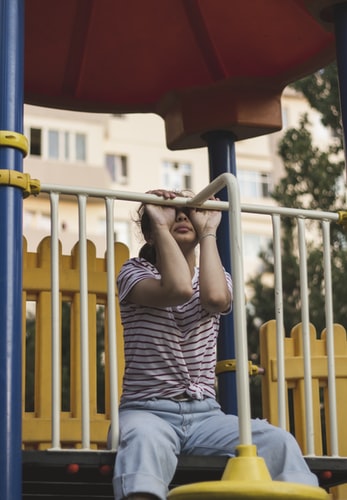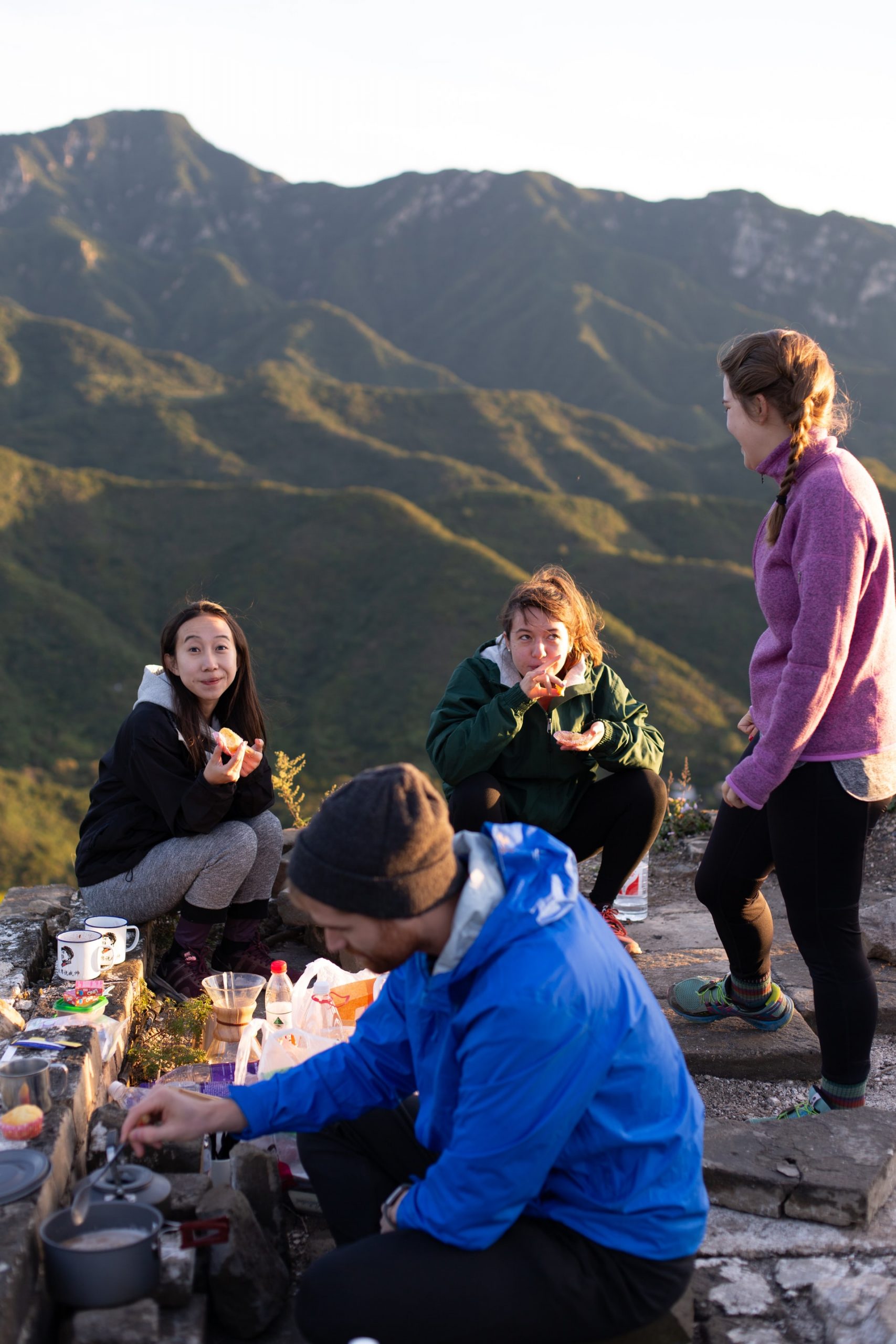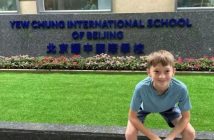From school being canceled to China’s borders being closed until October at the earliest, Beijing’s international community of parents, teachers, and students have had a harrowing couple of months. And those who made the difficult decision to leave during the height of the COVID-19 pandemic in China are faced with an uncertain future. Some families have made the firm decision to never return to China, while others hold out hope of returning eventually, but even these plans are far from set in stone. It leaves the families, and indeed their Third Culture children in limbo as to where home is and when they can return or readjust.
Rachel George, a counselor at Yew Cheng International School (YCIS) Beijing, knows these struggles all too well, as, in the last couple of months, she has had to find new ways to provide support to students and parents in this particular predicament.

YCIS counselor Rachel George
George can also relate from a personal standpoint. As a two-year resident of Beijing, she is currently back in her home town in Texas, USA. There is a prevailing sentiment of feeling ‘stuck’, as temporary arrangements have had to be adjusted for an indeterminate end date, and George has had to refamiliarise herself with the sights and sounds she left behind two years ago when she moved to Beijing. “Yes, I know my way around Houston and have familiarity with people, places, and things; however, I do not live here anymore.” George explains “My spirit does not belong here. These last few months have proven to me that I am indeed an expat. I no longer see or experience things from an American point of view. I belong more to the world at large…I am not the same Rachel as I was when I left. My mindset is different and just doesn’t seem to fit the mold of my home country.” This is true of all of us who have spent an extended period outside of our own countries, most especially when we are compelled to spend time back home.

“What happens when your heart is in different places?”
This can be especially difficult for families formed and expanded outside of the parents’ home country. The thought of returning and staying beyond a short obligatory yearly visit is stressful to some and entirely unthinkable to others. And yet, those stuck abroad find themselves in this very position.“There’s the guilt associated with being physically in your childhood home, but wanting to be back in the home that you have created as an adult,” explains George, adding “You always hear ‘Home is where the heart is’ but what happens when your heart is in different places?”
This is a question those stuck abroad have to grapple with, most especially those with children whose lives have been spent mostly in China. “Third Culture Kids is what we call them, for many of our foreign students, their ‘home’ in Beijing. It’s where they have formed memories, made connections, and grounded their little lives. For some, they are now in a place they may not personally identify with, but their parents can, which may add to any possible feelings of disconnection,” says George. With international families’ hopes of China being opened to foreigners before the start of the fall semester dashed, the doubts of ever returning to Beijing become increasingly galvanized. George continues, “Added to this is the uncertainty of the possibilities of ever returning. Unfortunately, for some children coming back to Beijing for closure will not be an option. We will have to create a sense of closure wherever we may be at this time.”
The decision to stay away is just as difficult as one to return, and no matter what, children are bound to be affected. “I think it is important for parents to acknowledge, work through, and share their feelings about being displaced. This allows your children to see feelings as normal and you are modeling how to work through any strong emotions. Ask open-ended questions such as: Tell me your thoughts about being in our new place. Then, when they answer, listen without judgment. Allow them time to process their thoughts and speak freely,” offers George. As for the lingering trauma as a result of these months of uncertainty, George has a few words of advice.

“Third Culture Kids is what we call them”
“Collectively, we are all experiencing a traumatic event. Trauma is quite simply an emotional response to a terrible event. Whether we have been directly or indirectly affected by COVID-19, we have experienced our share of emotions! Our children are no different. Children may have difficulty regulating their emotions, and you may see an uptick in off-task behaviors: emotional outbursts, defiance, irritability, etc. Just remember our emotions are our alarm system, they are trying to tell us something. Become an emotion investigator! Provide extra time to explore the root of the emotion and problem solve. Depending on the developmental age of the child and the parental support available, these reactions can be curbed, with a little extra love and support.”
As for those who will return, the process will require a significant amount of psychological and emotional preparation. “Start talking about routines early. Remember, a common source of stress is the unknown. If we frontload our children with meaningful information then the unknown becomes a little less scary. Talk about what the journey back may look like, what may happen when you return to Beijing such as quarantine, and eventually the return back to school,” George offers, adding “Determine any fears or worries your child may have and problem-solve them together. This helps to build their executive functioning skills! For example, if the worry is what the school cafeteria may look like with the new element of social distancing, do a little research. Drawing from your own experiences social distancing, what do they think would need to be done in the cafeteria? You can even have them envision and draw what they think it may look like.”
Whatever the case may be, this gradual but steady transition into an uncertain future in Beijing will require all of us, both present and stuck abroad, to adapt and evolve. From our idea of home to more robust contingency plans moving forward and everything in between, parents and children alike will have to create a new normal for themselves where the uncertainties of living in a foreign country are met with greater preparedness, awareness, and calm.
KEEP READING: Where Is Home When Raising Third Culture Kids?
Photos: Rachel George, Unsplash




